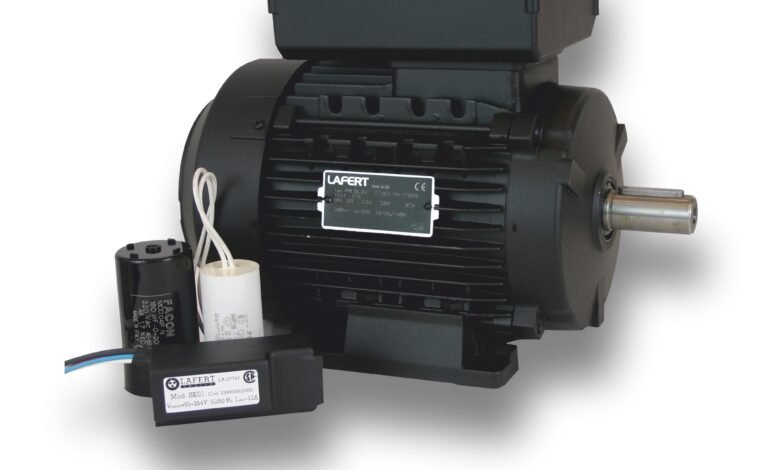Single-phase motors must comply with new efficiency requirements

A new dawn for single-phase motors is coming. Whilst three-phase motors have been required to meet increasing levels of efficiency over recent years, single-phase motors have escaped similar demands. That will change on July 1, 2023, as Brian Bannister
of Lafert Electric Motors explains.
From July 1 this year, most single-phase motors will be required to meet or exceed IE2 efficiency levels to comply with EU EcoDesign regulation EU2019/1781. This new efficiency will be demanded for single-phase motors with rated outputs from 0.12kW upwards.
Variable speed drives intended for use with single-phase motors will also be required to meet new efficiency standards compatible with the new motor requirements.
The new Regulation establishes ‘EcoDesign’ requirements for the placing on the market or the putting into service of single-phase electric motors and variable speed drives, including where they are integrated into other products.
Achieving the new levels of efficiency required to meet IE2 will come at a cost, due to the need for much more active material, low-loss steel laminations and copper. The consequence of these factors could lead to possible changes to either frame size or performance, or maybe even both.
Producing dual voltage (230/15v) motors might not be possible, whilst dual frequency motors (50/60Hz) will present their own issues. Also, 60Hz motors will be challenging and more costly to produce because of the winding losses incurred at higher running speeds.
A number of motor manufacturers have decided that the new legislation is far too complex and demanding and, consequently, have dropped single-phase motors from their ranges. In contrast, Lafert Electric Motors has expanded the powers that can be offered as the required design changes have been made. Furthermore, the company’s flexible designs can provide many variations of customised shafts and flanges along with very specific electrical designs.
Due to current production lead times across all industries, however, it is vitally important that any OEM or customer using single-phase motors should ensure they either meet compliance or will have assured continuation of supply from their current supplier after the summer of 2023. The concern is that many machine builders are still in the dark regarding this important mandatory legislation, which might significantly impact their production planning.
There are some single-phase motors to which these new efficiency requirements will not apply. Typically, such motors are designed to operate under specific conditions or configured to perform a particular function. Exempt motors might be employed in challenging environments or used for applications that make it impossible for the new efficiencies to be implemented. For guidance regarding these exceptions and the latest regulatory requirements, it is advisable to consult a motor specialist.








